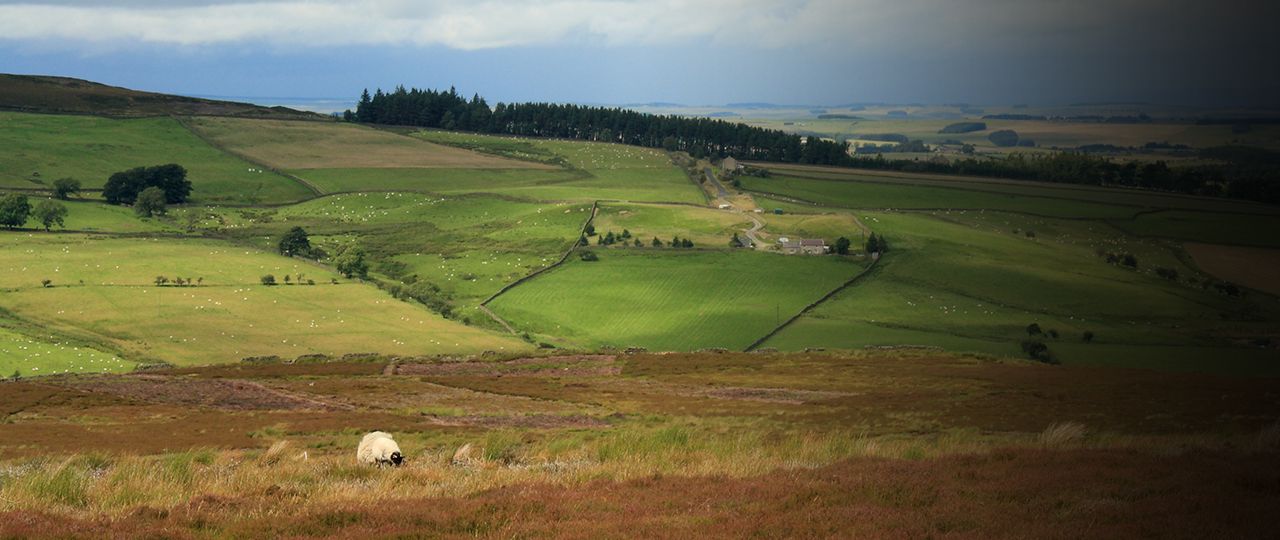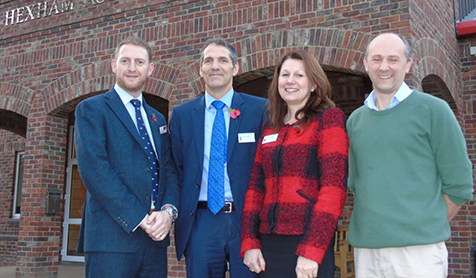
Strutt & Parker is a proud supporter of the Northern Farming Conference - both as a sponsor and as part of the organising committee.
The North of England is a region that boasts some of the best, most progressive farmers in the country, as recognised by their success in the recent Farmers Weekly Awards. It’s a region that we strongly feel deserves to have its own conference, giving the farming community the chance to discuss the particular challenges they face and celebrate their successes.
The event, now in its eight year, has always aimed to have a “muddy boots” feel which gives delegates information about developments across the agriculture industry to help short- and long-term farm business planning.
So what were the take-home messages from this year’s conference which took place at Hexham Auction Mart on 8 November?
Better Basic Payments
There were encouraging promises from Paul Caldwell, chief executive of the Rural Payments Agency, about improving the service offered to farmers and promising a new era of transparency at the RPA to help create a “world-leading food and farming industry”.
In his first public speech since being confirmed to the position in July 2017, Mr Caldwell acknowledged that the RPA’s customer service had not always been as good as it could have been and he understood farmers’ frustrations.
But he was committed to more open dialogue with the industry and greater transparency, as part of the RPA’s drive to offer “the best possible service to farmers”.
Mr Caldwell said he entirely understood the importance of timely Basic Payments to cashflow.
“One of my commitments is to make sure that our decisions – when we take them – are based around what is it that gets the most cash out to the most people as quickly as possible,” he said.
He also revealed that the RPA is currently in the process of writing to farmers to acknowledge any outstanding correspondence about previous BPS claims in a bid to clear up issues dating back to 2015 and 2016.

Strutt & Parker's Matthew Curry alongside some of the speakers
Take control of change
There was general agreement among speakers that farmers need to focus on the parts of their business which are within their control, rather than waste energy on factors that aren’t.
Farmers were also urged to think about how they can positively manage, rather than simply react, to the changes that are coming as a result of Brexit.
Paul Temple, chairman of AHDB’s cereals and oilseeds sector board, highlighted how the organisation’s modelling work showed the impact on profitability under various trading scenarios facing the farming industry post-Brexit.
While in many cases farmers were looking at a significant drop in farm incomes, under every scenario the top 25% of producers either survived or thrived.
Farmers were urged to aspire to keep getting better and implement “simple changes that make a big difference.”
A good first step was for farmers to know and understand their business costs, along with making the most of farmer-to-farmer learning opportunities and tapping into regionally-relevant knowledge exchange, he said.
This ties in with our view that improvement through marginal gains will be key to future success.
Farmers need to focus on the fundamentals of running an efficient business which means having a detailed understanding of your markets, revenues, costs and profits. On the ground, it means aiming for excellence in terms of growing a crop or managing stock.
Post- Brexit trade deal is critical
It was reassuring to hear that farm leaders and some politicians are lobbying hard to get the right post-Brexit trade deal in place and to reposition food and farming in the eyes of the government, as it develops its domestic agricultural policy.
The issue of future trading arrangements is a particular concern to farmers in the north of England, given the importance of the European market for the region’s sheep sector.
Minette Batters, NFU deputy president, described trade as the issue which would “shape the landscape for years to come”.
Sue Hayman, shadow secretary of state for the Environment, Food and Rural Affairs, said farming was a key component of the economy, driving growth in rural communities up and down the country.
“Trade deals should not undercut British farming in a race to the bottom on food standards and animal welfare.
“We must not allow the UK to become swamped with imports of food produced to lower environmental, social and animal welfare standards to those of our UK producers.”
The Northern Farming Conference is a joint venture between the CLA, Strutt & Parker, Womble Bond Dickinson, Armstrong Watson, Catchment Sensitive Farming, Gibson & Co Solicitors and Hexham and Northern Marts.
